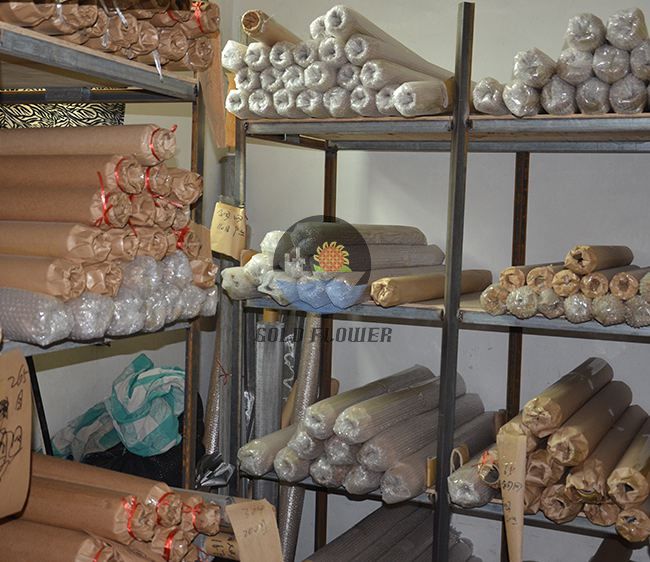Nov . 09, 2024 01:00 Back to list
CE Certification for Metal Fine Mesh Products and Their Applications
The Importance of CE Certification for Metal Fine Mesh Products
In today’s global marketplace, ensuring product safety and compliance is crucial for manufacturers aiming to compete effectively. One essential certification that many industries look for is the CE certification, particularly in the context of metal fine mesh products. This certification not only demonstrates compliance with European safety standards but also signifies a commitment to quality and consumer protection.
Understanding CE Certification
CE certification, which stands for Conformité Européenne, is a mandatory mark for certain products sold within the European Economic Area (EEA). This mark indicates that the product meets specific EU standards and regulations regarding health, safety, and environmental protection. For metal fine mesh products, which are utilized in various applications—from filtration to construction—CE certification can enhance marketability and ensure user safety.
Why CE Certification Matters for Metal Fine Mesh
1. Safety Assurance Metal fine mesh products are used in diverse fields, including agriculture, pharmaceuticals, food processing, and construction. The safety of these products is paramount, as they can have direct implications on public health and safety. CE certification ensures that the mesh products have undergone rigorous testing and meet stringent safety standards, providing reassurance to both manufacturers and end-users.
2. Market Access The European market is one of the largest and most regulated markets globally. For manufacturers outside the EU, obtaining CE certification is often the key to accessing these lucrative markets. Without this certification, products may not be legally sold within the EU, limiting market opportunities.
3. Competitive Advantage In a competitive industry, having CE certification can set a manufacturer apart from competitors who may not have undergone the rigorous certification process. This distinction can enhance customer trust and potentially increase sales, as buyers tend to prefer products that comply with established safety standards.
4. Quality Assurance The CE marking process involves thorough testing and evaluation by accredited organizations. Manufacturers that pursue CE certification often improve their production processes and product quality in order to meet the certification requirements. Consequently, this focus on quality not only helps in achieving certification but also enhances the overall reputation of the manufacturer.
ce certification metal fine mesh

5. Legal Compliance Compliance with EU regulations is not just a matter of gaining market access; it is also a legal requirement. Products without CE marking may face penalties, recalls, or even bans from the market. Therefore, obtaining CE certification is not just an option, but rather a necessity for manufacturers aiming to protect their business interests.
The Certification Process for Metal Fine Mesh
The process of obtaining CE certification for metal fine mesh products involves several steps
1. Product Assessment Manufacturers must determine which EU directives apply to their products. In the case of metal fine mesh, directives can include those related to machinery, construction products, or personal protective equipment, depending on the intended use.
2. Testing and Evaluation The product must undergo testing by designated Notified Bodies. These organizations carry out evaluations to ensure compliance with relevant standards. The testing may include assessments of the mesh’s tensile strength, durability, and resistance to corrosion.
3. Technical Documentation Manufacturers must compile a technical file that includes product specifications, test results, and a declaration of conformity, which declares that the product meets all applicable standards.
4. Affixing the CE Mark Once all requirements are met, the manufacturer can affix the CE mark to their product, signifying compliance and allowing access to the EEA market.
Conclusion
In conclusion, obtaining CE certification is a critical step for manufacturers of metal fine mesh products. The certification not only ensures compliance with stringent European safety standards but also enhances product quality, marketability, and legal compliance. As global trade continues to expand, the importance of CE marking cannot be overstated—it represents a commitment to safety, quality, and consumer confidence in a competitive marketplace. For manufacturers looking to thrive in this environment, investing in CE certification is more than just a regulatory requirement; it is a strategic business decision that can yield significant long-term benefits.
share
-
Premium Twill Weave Mesh for Industrial Filtration & Strength
NewsAug.03,2025
-
CE Certified 250 Micron Stainless Steel Mesh - Durable Filter
NewsAug.02,2025
-
Screen Mesh Price Deals | gpt-4-turbo Optimized Pricing
NewsAug.01,2025
-
CE Certified 250 Micron Stainless Steel Filter Mesh | Premium
NewsJul.31,2025
-
CE Certified 250 Micron Stainless Steel Mesh | Premium Filter
NewsJul.31,2025
-
CE Certification Buy Wire Mesh Fence for High Security and Durability
NewsJul.30,2025

